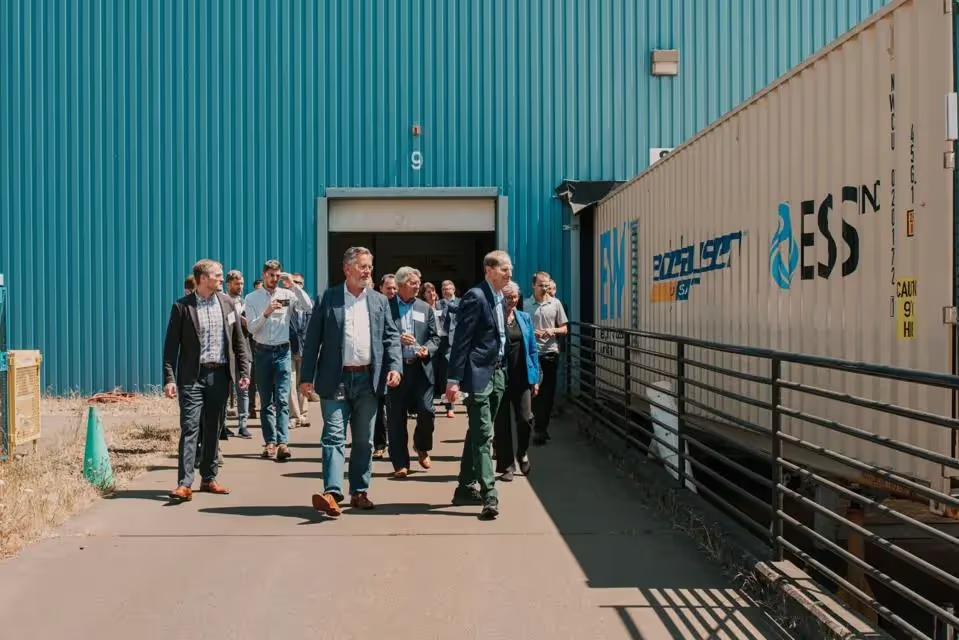
Advancing Iron Flow Battery Technology with ESS
Project Description
Flow batteries offer a promising alternative to traditional lithium-ion storage, providing long-duration energy storage with improved safety and scalability. Unlike sealed battery cells, flow batteries store energy in large liquid tanks, pumping electrolytes through a membrane to generate or consume electricity.
CER’s partnership with ESS began in 2017 through the ARPA-E CHARGES, a program designed to help early-stage energy technologies scale. ARPA-E invests in high-risk, high-reward innovations, knowing that only a few will succeed—but those that do could make a major impact. As a previous ARPA-E program high-performer, ESS was ready to take the next step by demonstrating first large-scale system of their unique and proprietary iron-chloride flow battery technology.
CER hosted their 50-kilowatt, 400-kilowatt-hour flow battery at its large, outdoor testing site the Energy Storage Innovation Facility (ESIF). The system demonstration was not just a showcase; it was an opportunity to refine the technology in a real-world setting. Through our collaboration, ESS gained key insights that helped improve the durability of their power stack seals, optimize hydrogen recapture, and stabilize their DC power electronics. These were critical refinements ensuring that their system could transition from prototype to commercial viability.
In a first-of-its-kind technology demonstration, especially one involving complex chemical and electrical systems, challenges aren’t setbacks—they were part of the process. By working through them, ESS strengthened pushed forward their technology and, in 2021, became the first publicly traded long-duration energy storage company. In 2024 ESS secured a commercial contract with Sacramento Municipal Utility District for a 3.6-megawatt, 8-hour iron flow battery project. Their success highlights the importance of early-stage demonstrations, not just for advancing individual companies but for shaping the future of clean energy.
Interested in partnering on research?



